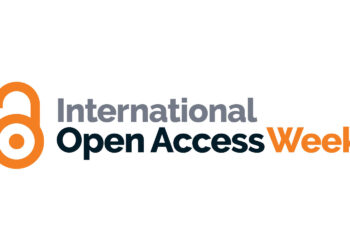
If this post’s headline makes you think the waters ahead may be murky and brackish, then it’s a good headline. But sail on, and I will do my best to keep the winds at your back.
Anil Dash recently published a post with the playful title, “Tech Now Has Its Own RIAA. Meesa Scared!” Dash appropriated the broken English of Jar Jar Binks, the justifiably maligned CGI character in the forgettable Star Wars prequels, in order to make a point — it was Binks, all innocence and sincerity, who ultimately made the Republic and the Emperor’s rule possible, through his fateful vote in the Senate. As Dash writes:
. . . the government in the Star Wars universe went from being an elected republic to an autocratic empire due to a wartime policy change which Jar Jar introduced with the intention of protecting people in the most efficient way possible.
This gets to Dash’s point of regulatory capture, which we’ll arrive at shortly.
But first, let’s get back to reality.
The Internet Association is a new confederation of Internet companies (“. . . the unified voice of the Internet economy”) which includes LinkedIn, Google, Yahoo!, Amazon, eBay, and AOL, among others. It’s mission statement is as follows:
The Internet Association represents the interests of America’s leading Internet companies and their global community of users. We are dedicated to advancing public policy solutions to strengthen and protect Internet freedom, foster innovation and economic growth and empower users.
Dash’s concern is that while the IA is starting with these high-minded core values, ultimately it may begin to lobby for its own self-interests — that is, the “interests of America’s leading Internet companies” will ultimately trump “the interests of . . . their global community of users.” It will then begin to lobby for rules and laws that put the first ahead of the second. This is what Dash somewhat erroneously refers to as “regulatory capture.”
What Dash intends is more like “self-interest.” Regulatory capture truly refers to state agencies becoming industry advocates — such as the Federal Communications Commission (FCC) doing the bidding of the major media conglomerates. The Internet Association is not a state agency, but a trade group. But whatever you call it, Dash’s point remains a good one, even if the terminology needs a bit of clarification.
Trade groups seem to start with high-minded goals and then — after years of activity — drift toward self-interest. Dash points to the Recording Industry Association of America (RIAA) and Motion Picture Association of America (MPAA), which were both started to foster innovation and artistic freedom, but which ultimately have become protectionist to a large degree — quashing pirates, subtly narrowing artistic freedoms, and defending the status quo.
This has perhaps happened in publishing, as well, with the American Association of Publishers (AAP) having carved out a vibrant book publishing world, then shifting from a focus on readers and authors and their needs to a focus on publishers and their needs. Their role is currently defined as:
AAP is the trade association for the U.S. book publishers, providing advocacy and communications on behalf of the industry. AAP represents the industry’s priorities on policy, legislative and regulatory issues regionally, nationally and worldwide.
The AAP still has a legacy of defending First Amendment freedoms, and supports Get Caught Reading, a campaign to promote reading at all grade levels. Last I saw, posters from “Get Caught Reading” hang from the walls of their offices. But the organization is more well-known these days as a trade group for publishers.
Publisher trade associations aren’t alone in this drift. The American Library Association (ALA) states its goal thus:
The object of the American Library Association shall be to promote library service and librarianship.
Comparing this with its mission upon its founding in 1876 makes the drift more apparent:
. . . to provide leadership for the development, promotion, and improvement of library and information services and the profession of librarianship in order to enhance learning and ensure access to information for all.
Like the MPAA and RIAA, the AAP and ALA have moved more toward its paying members, pushing legislation and organizational aspects that enhance their particular version of the status quo or comfortable incrementalism. Dash’s point seems a little more generalizable — perhaps organizations that initially attempt to address both the market needs and the provider needs tend to drift toward protecting the providers’ needs. After all, the providers fund the organizations, and their success with the market is covered by proxy through this arrangement.
Interestingly, one of the more recent trade groups, the Open Access Scholarly Publishers Association (OASPA), founded in 2008, goes directly to self-interest in its mission statement:
The mission of OASPA is to support and represent the interests of Open Access (OA) journal and book publishers globally in all scientific, technical, and scholarly disciplines.
In all of these examples, the user or the reader or the customer seems to be the first to be jettisoned, if they’re included at all. Perhaps this is a normal consequence of a successful trade group — the industry in question becomes sufficiently robust so that its members can adequately attend to customer needs, allowing the trade group to shed the duty of cultivating an audience and focus on servicing its success.
But Dash’s main point — that when trade organizations become reflexively protectionist or defensive, the thing they’re defending is actually more vulnerable to disruption — is worth heeding. We invite disruption when put ourselves ahead of our audience. And then, we risk repeating a mythical story arc — as Dash writes:
. . . when we create institutions under times of duress in order to protect ourselves from outside attacks, those institutions can get corrupted over time, with unintended consequences. One day you’re worried about protecting your trade federation, the next day you’re slogging through the trash compactor on a Death Star.
Discussion
9 Thoughts on "The Internet Association, Jar Jar Binks, Regulatory Capture, and the Drift Toward Self-Interest"
Are you seriously proposing that trade associations should protect the interests of their members’ customers, or suppliers, or users, or whoever, to the detriment of the interests of their members?
I think that trade associations that don’t take into account the customers of their customers are making themselves vulnerable, yes. If a book publishing trade association doesn’t help create demand for books, it’s in a weaker position, and could become myopic and stumble. The AAP’s initiatives to protect authors and create readers make a lot of sense because they support their members by supporting their members’ customers. To me, that’s a wise and sensible approach.
You did not answer my question. TA’s routinely work to build demand for their members’ products and services. They will even intervene on issues that threaten their customers or suppliers, but they do this in the interest of their members. Protecting those member interests is the standard mission of a TA, because policy making in a democracy is an advocacy process.
Some TA mission statements may seem overly altruistic, but this is because people in industry think they are doing good by serving the needs and wants of society. In this regard the Internet Association is poorly named. It does not represent the Internet. The Internet Big Business Association might be better.
I suppose it’s predictable that I’d point out how different SSP is in this regard. I’ve hammered away for years on how important it is that SSP is _not_ an advocacy group, and that it consists of members from all the constituencies you mention: publishers (book and journal, commercial and society, the biggest and the tiniest, and . . . yep . . . open access or not — come back, Heather Joseph!), scholars, librarians, vendors, etc. In a very fundamental way, it represents no one, and therefore everyone. My point in this context is that SSP is _structured_ to ensure that. We need more broad-based organizations like SSP that don’t have to make an effort not to be partisan or self-interested, they simply cannot be, by their very nature. (IDPF promises to be another one, btw.)
You really should take this one step further:
The primary goal of any organization or institution is the preservation of itself as an entity.
With regard to OASPA, I mentioned this several years ago to one of its founding members that I found their mission statement to be entirely self-serving. Indeed, the first rule in the OASPA Code of Conduct reads:
Members should not indulge in any practices or activities that could bring the Association or open access publishing into disrepute
You seem to imply that working to protect the First Amendment or to encourage more people to read is not in the self-interest of an organization like the AAP. But those activities can be construed as just as much central to the core of AAP’s self-interest as the protection of copyright–which, by the way, is very much a concern of authors as well (just as the members of the Authors Guild).



